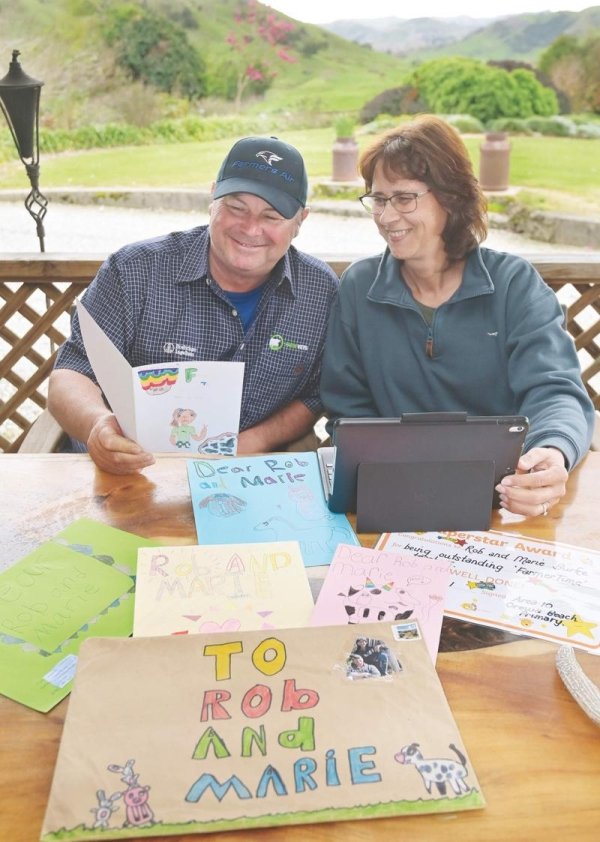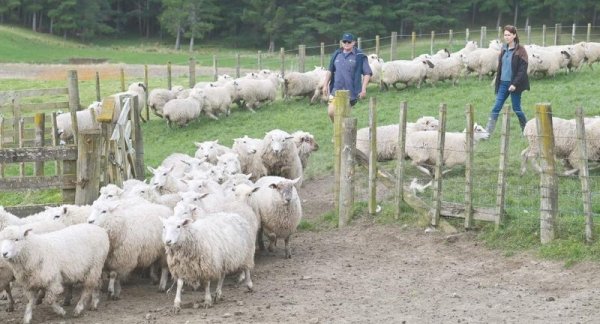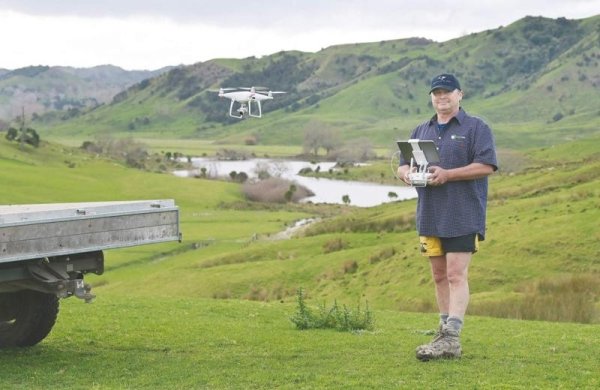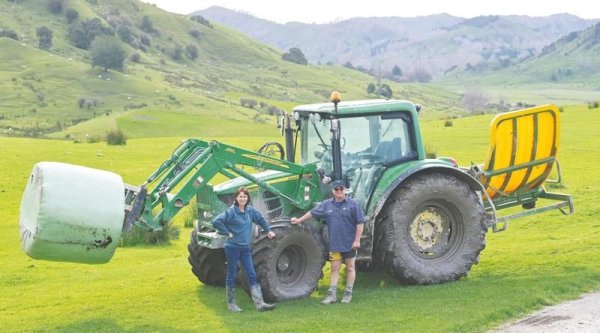FROM FARM TO CLASSROOM
This article first appeared online at Gisborne Herald on 24 July 2022.
Photos courtesy of Liam Clayton.
It was a no-brainer for Marie Burke to sign up for the pilot programme for Farmer Time, combining her two passions — farming and education.
The programme links farmers and growers with urban-based primary and intermediate school children to give them an intimate view of rural life and an insight into food production.
“I was approached by Beef + Lamb New Zealand farmer councillor Sandra Matthews and knew it was definitely something I wanted to be involved in,” Marie says.
She quickly convinced her husband Rob who said he was a bit apprehensive at first. Now he's a fan and has become a dab hand at making short videos of farm life to share with the Orewa Beach Primary School class they were matched with.
Marie has now been appointed national coordinator for the programme and is matching farmers with classrooms across the country.
“I have a foot in both camps having been a teacher for more than 20 years and involved in farming my whole life. This is my dream job,” she says.
The initiative, which originates from the UK uses virtual classroom sessions using video call technology.
Students regularly chat live with their matched farmer, gaining an understanding of farming across the seasons and experiencing real-world examples of what they're learning during the school year.
Kit Arkwright, chief executive of Beef + Lamb New Zealand, which is driving the initiative, is keen to see food producers from all sectors get involved.
“Farmer Time puts actual farmers in front of children and gives them genuine insights into how our food is being produced. The feedback from both teachers and farmers has been incredible.”
The pilot programme involved eight farmer-teacher pairings across six schools with approximately 184 students. It ran across term one, with many pairings staying with the programme in term two.
Marie and Rob were paired with Orewa Beach Primary School and worked closely with teacher Helen Jury who shared their passion for the programme.
“We did 15-minute Zoom calls with the class and covered everything from farming systems to animal nutrition,” says Marie.
The children would send them through questions in advance and especially loved the short videos showing farm life. One of their favourite videos involved the donkeys, Bert and Ernie, who live with the bulls.
Rob said they made a real connection with the kids and would both be buzzing after their sessions.
“They were so enthusiastic, engaged and showed a genuine interest in learning about farm life.”
Marie was surprised by how few children had any experience of farm life and shocked when some didn't know where the meat they ate came from.
Research carried out by Rabobank shows that around 80 percent of urban teens know only a little or nothing about farming and food production.
“We believe our children should know where the food they eat comes from and how it is grown,” says Marie.
“And for those who live in cities and towns, what better way to experience this than by virtually visiting their very own farmer or grower and learning first-hand what they do?
“The realisation that many young New Zealanders have become disconnected from the origins of their food and the people who grow it has led me to search for ways to help create change in this space.
“Farmer Time is an exciting programme which inspires, engages and educates children and their teachers about the journey of food from the farm to their fork.”
It sits comfortably alongside the Garden to Table educational initiative already happening in many schools where students grow, harvest and prepare their own food.
For farmers the highlight is the relationship they form with the teacher and class and having the opportunity to share what life as a farmer is like.
“It's great to be able to show kids what we do through the year as custodians of our land and caretakers of the produce we grow,” says Marie.
“And because it's all done online a farmer from the deep south can chat to a class in the far north or vice versa — location is no barrier to the wonderful learning experience.”
Some of the topics covered with the Orewa Beach class included animal health and welfare, growing and harvesting crops, farming animals for food, working dogs and mustering, animal behaviour, the environment, shearing, docking, farm vocabulary and much more.
“The children were fascinated by the corn harvesting process,” says Rob.
“I sent them drone footage of the machines at work. They were interested in the fact the sweetcorn we grow in Gisborne could end up as frozen corn in their freezers at home. Or that some of our sweetcorn gets made into powdered soup for the Japanese market.”
In term 2 Rob and Marie were paired with Edendale Primary in Sandringham, Auckland, and they still have monthly Zoom calls with the Orewa Beach class which didn't want to stop when the pilot ended.
They received dozens of hand-drawn cards from the students telling them how much they enjoyed the Farmer Time interaction.
“One of the great things about Farmer Time is the flexibility of the programme,” says Marie.
“It's up to the teacher and farmer to decide what will be covered and how it will be done.
“Much of this will be driven by what the children already know and the questions they ask.
“In our experience they have great questions,” she says.
Farmer Time was founded by British farmer Tom Martin and has been extremely successful in the UK. New Zealand is the fifth country to adopt the initiative — along with the UK, Ireland, Finland, Sweden and Australia.
Marie and the team at Beef + Lamb New Zealand are working hard to get the word out about Farmer Time and match up farmers and growers to classrooms.
Their aim is to get every urban-based primary and intermediate school in New Zealand involved in the programme.
Registrations have started coming in with a range of food producers signing up. There are small market gardeners and large- scale vegetable growers, farmers of sheep, beef, dairy, pigs and chickens, growers of grain and a couple of farmers who have native plant nurseries alongside their other farming interests.
Marie has also had interest from a beekeeper and would like to get some fruit growers on board.
“I'm sure as more and more people get involved they will see how easy Farmer Time is, but also how rewarding.”
